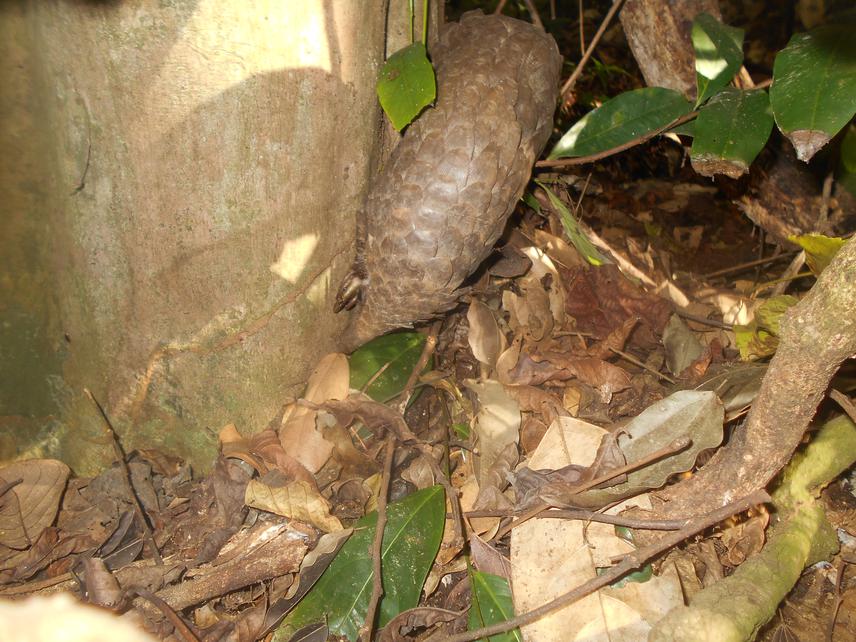Stephen Ofori
Other projects
27 Jul 2022
Scaling Up Pangolin Conservation in Ghana; Local Conservation Actions for Global Impact
The overall aim of the project is to gather baseline ecological data on pangolin populations, distributions and habitat associations, and create conservation awareness on the local and global status of pangolins in Ghana.

Pangolin spotted by team whilst feeding.
Pangolins are among the most threatened and widely traded species in the world. The species also known as scaly anteaters is a delicacy in Asia particularly China and Vietnam and they will pay premium prices to buy them mostly from Africa. Also in many parts of Africa, pangolins are hunted for traditional medicine (e.g. in Sierra Leone, see Boakye et al., 2014; Nigeria, see Soewu and Adekonola 2011; Ghana, see Boakye et al., 2015). In Ghana for instance, 13 body parts of pangolins are used in the treatment of 35 ailments (Boakye et al., 2015). This high demand of pangolin parts is a major driver of the species' illicit hunting and trade. In recognition of the current plight of pangolins, the IUCN pangolin specialist group in 2014, came up with a Conservation Action Plan, which distills key action points to conserve these threatened species. The Action plan recognizes the need to gather baseline ecological data in African in order to better assess how the current hunting regimes is impacting wild pangolin populations. The overall aim of this project is therefore to document and obtain a current baseline ecological data on pangolin populations and create conservation awareness on the local and global status of pangolins in Ghana. This aim among others will be accomplished through the following specific objectives;
1. Determine pangolin population and distribution in the Atewa Hills of Ghana.
2. Establish habitat characteristics essential for the existence of pangolins in the Atewa Hills of Ghana.
3. Create grassroots awareness on the status of pangolins and the need to conserve them in the fringed communities of Atewa Hills of Ghana targeting poachers, traditional herbalist and school children. It is expected that this project will;
a. Contribute to improving our understanding of the ecology, and distribution and conservation needs of pangolins in Ghana. Without this information, it is difficult to make any conservation recommendation for pangolin conservation in Ghana.
b. Contribute to raising public awareness and conservation education on the plight of pangolins in Ghana and raise the interest of the local government, wildlife division and the general public towards its conservation. The education activities will include conservation talks, presentations, drama and radio programs in the local language to further educate the communities.